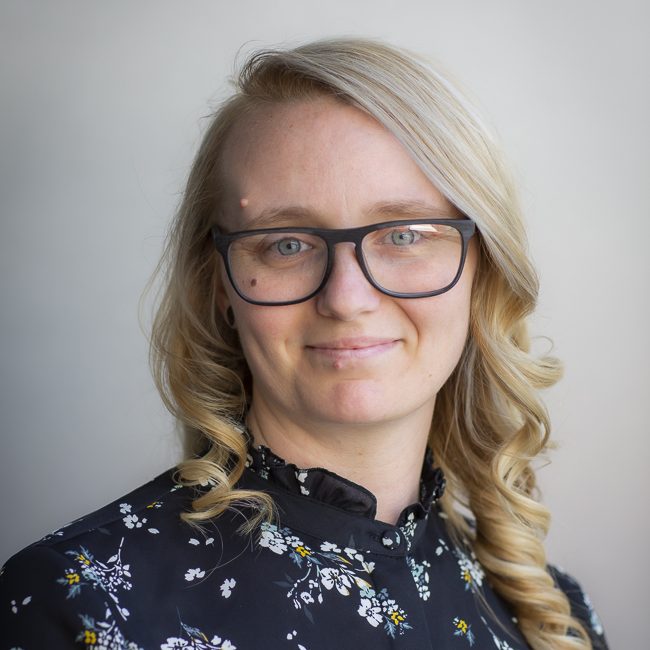
Dezerae Cox
Bio21 Institute, The University of Melbourne
Dr Dezerae Cox is a Postdoctoral Research Fellow at the University of Melbourne, where she works with A/Prof Danny Hatters on understanding the fundamental proteostasis machinery that keeps our cells healthy. Dezerae completed her PhD with Prof Heath Ecroyd at the University of Wollongong, during which time she characterised the interaction of small heat shock molecular chaperone proteins with α-synuclein, an aggregation-prone protein associated with Parkinson’s disease. She then joined the Hatters Laboratory in 2017, where she now develops and applies novel proteomics-based biosensors of proteostasis in live cell models. Dezerae continues to drive advances in our understanding of the fundamental biology underlying proteostasis breakdown in neurodegenerative protein aggregation disorders, with the overarching goal of developing preventative measures, improved diagnostic techniques and better, targeted therapies.
Can you give me a quick overview of the type of mathematics you are studying and its potential impacts for the broader community
I use bioinformatics to understand how cells change their regulatory machinery in response to stress. I am working to quantify this stress response as a way to understand what happens to neuronal cells in the brains of people with neurodegenerative disorders such as Alzheimer’s and Motor Neuron diseases.
What did you want to be when you grew up? If not mathematics research, what would have been?
I wanted to be a “hacker” (but for the good guys!). A lack of representation, and an affinity for biology and mathematics, meant that I ended up completing a biotechnology degree and found my passion in fundamental biomedical research. A few years later, and I have found myself learning bioinformatics to analyse my research results – almost my dream job!
You attended AMSI BioInfoSummer, what drew you to this event? What was the most valuable part of AMSI BioInfoSummer for you in terms of furthering your career in mathematical sciences?
I was drawn to this event due to the combination of lecture-style presentations and hands-on workshops. The ability to engage in directed learning, to implement the techniques described during the research talks, was extremely valuable.
In what ways has the experience impacted your maths studies? Did this event lead to any new contacts, projects, collaborations?
This event enabled me to connect with the bioinformatics community in Australia, including building a new network in a field I had no previous association with. This is extremely important in my current role, as I am already dabbling in bioinformatics techniques without any formal training.
Where do you see yourself in five or ten years time?
I forsee bioinformatics to be a cornerstone of my scientific career for many years to come. It is my goal to establish an independent research team tackling important fundamental biomedical questions using an integrated bench-to-bioinformatics approach.
Who are your mentors? Who do you admire?
I have many career mentors, including leaders in protein homeostasis research in Australia and internationally. However, I have had limited exposure to the bioinformatics community. After attending BioInfoSummer, I have developed a keen admiration for Helena Crowell, who I found to be an inspirational speaker with a phenomenal record of impact in bioinformatics at an early stage in her career.
You received a CHOOSEMATHS Grant to assist your attendance at AMSI BioInfoSummer. How important was this in terms of your ability to attend and fully participate in the sessions throughout the week? How did you hear about the grant?
The CHOOSEMATHS grant enabled my attendance at BioInfoSummer, and I would otherwise not have been able to travel to the event. I heard about this grant through email newsletters, which I signed up to after seeing BioInfoSummer advertised on twitter.
How important are initiatives such as the CHOOSEMATHS Grants in terms of fostering the participation and achievement of women in mathematics, particularly in terms of access to networking opportunities and further training opportunities?
The provision of these travel grants contributed to the high proportion of female participants at BioInfoSummer. Having gender parity helped to make the event an inclusive, welcoming and safe space for female attendees. In turn, this made it more likely for women like myself, who are new to the community, to feel comfortable and engage fully in the program. The number and calibre of questions asked by female attendees early in their career was a testament to this.
The CHOOSEMATHS Grants are part of a broader program being delivered by AMSI Schools with support from BHP Foundation to turn the tide on Australia’s maths deficit and strengthen maths education and participation of women across the discipline. What do you see as the big challenges facing maths in Australia, particularly for women?
I feel mathematics still carries the reputation of being for high-performing students who intend on pursuing careers where maths is an obvious foundation (e.g. engineering), and therefore likely still attracts more males than females. While the current CHOOSEMATHS campaigns shown during the lunch event are a great start, changing this gender stereotype among youth will be difficult without also addressing attitudes of their parents’ generation.
Best piece of advice you’ve received?
“Be fearless in the pursuit of what sets your sole on fire” – Unknown.
Great reminder to put fear (from asking a silly question to the great unknowns of a scientific career) aside and pursue whatever it is that truly sparks your passion.
If a peer asked you if they should attend AMSI BioInfoSummer, how would you describe the conference to them?
BioInfoSummer is an action-packed tour of bioinformatics research in Australia and beyond. A wonderful mix of seminars give a flavour of the cutting-edge techniques and methods being developed, coupled with the chance to test-drive these methods in workshops taught by those same experts. All this combined with meeting a fantastic group of researchers from a broad range of disciplines and career stages makes BioInfoSummer a must-attend event for aspiring Australian bioinformaticians.

